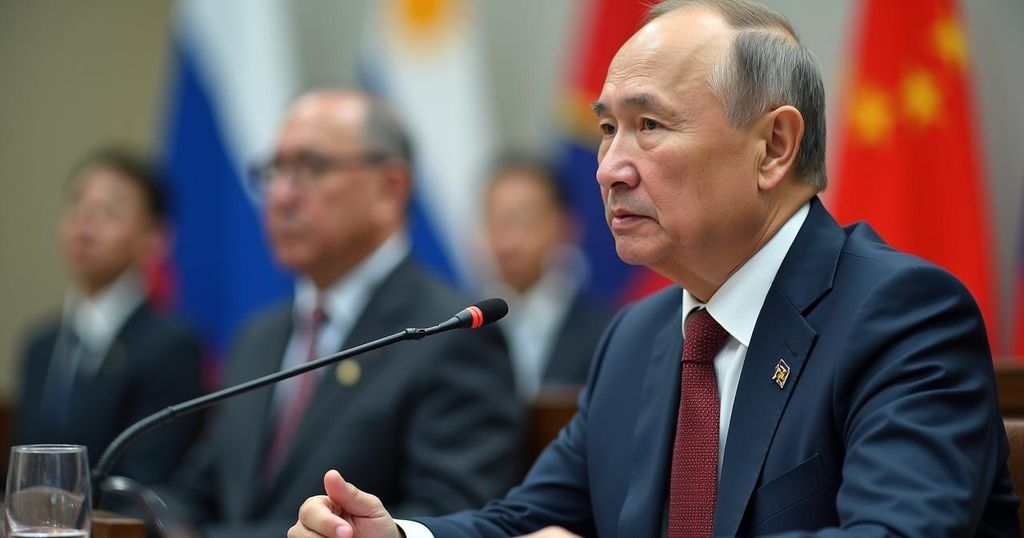Cagayan de Oro Representative Rufus Rodriguez condemned Russia for obstructing an ASEAN statement on the South China Sea, asserting that Russia should not intervene in regional matters. He claimed that the block was motivated by Russia’s self-interest due to China’s support in Ukraine. Tensions in the area, particularly involving the Philippines, have led to heightened diplomatic activity, with President Marcos emphasizing the link between political security and economic cooperation in meetings with ASEAN leaders.
Representative Rufus Rodriguez from Cagayan de Oro’s 2nd District has expressed strong disapproval of Russia’s interference, specifically for its role in blocking a draft statement by the Association of Southeast Asian Nations (ASEAN) concerning the South China Sea. He emphasized that Russia is not entitled to meddle in the dynamics of Southeast Asia. Rodriguez’s comments come in light of reports stating that both Russia and China obstructed the issuance of a statement intended to strengthen ASEAN’s position on the South China Sea code of conduct. A United States official indicated that disagreement primarily centered around the reference to the United Nations Convention on the Law of the Sea (UNCLOS). Rodriguez condemned Russia’s actions as motivated by self-interest, suggesting that it was a form of gratitude towards China for its support of Russia’s military actions in Ukraine. He asserted that such interference in regional matters is unacceptable. Recently, it was reported that during the East Asia Summit, ASEAN proposed a draft which was not accepted due to opposition from Russia and China. Tensions in the South China Sea have escalated recently, particularly involving the Philippines, with President Ferdinand “Bongbong” Marcos Jr. and allies publicly criticizing China’s conduct in the region, especially after aggressive encounters involving Chinese military aircraft and vessels. In a significant meeting at the ASEAN gathering in Laos, Marcos confronted Chinese Premier Li Qiang, stressing that economic cooperation cannot be divorced from political security, especially given the current state of tension.
The South China Sea has been a contentious region, with China asserting expansive claims that overlap with the territorial waters of several Southeast Asian nations, including the Philippines. This geopolitical struggle has heightened tensions, leading to frequent confrontations between military assets and an ongoing diplomatic stalemate in international forums. The ASEAN bloc aims to present a united front regarding issues in the South China Sea but faces challenges, particularly from influential non-regional players such as Russia and China. Recently, there have been efforts to establish a code of conduct in the South China Sea to prevent conflict and ensure freedom of navigation, but these efforts have been complicated by external interference.
In conclusion, the actions of Russia in blocking ASEAN’s draft statement on the South China Sea have provoked significant criticism from Representative Rufus Rodriguez. His remarks underline the importance of regional autonomy and the need for Southeast Asian nations to uphold their sovereignty. As tensions in the South China Sea become increasingly pronounced, the roles of influential powers like Russia and China warrant careful scrutiny. This situation encapsulates the broader geopolitical dynamics at play in the region, highlighting the challenges ASEAN faces in achieving consensus on security matters while navigating external pressures.
Original Source: www.inquirer.net







